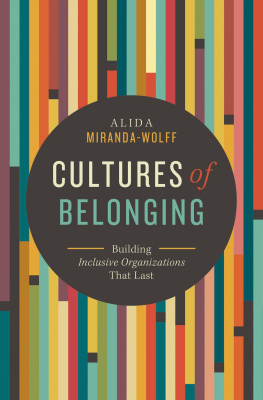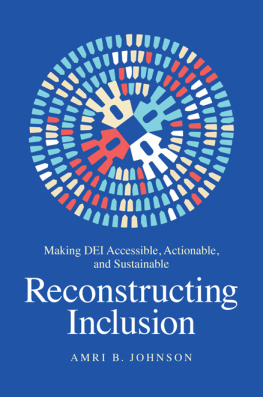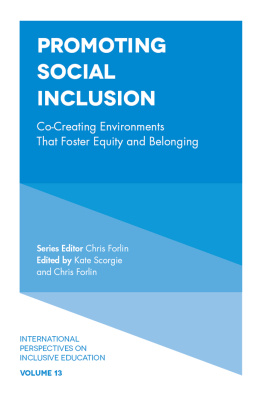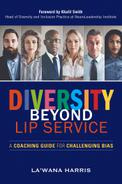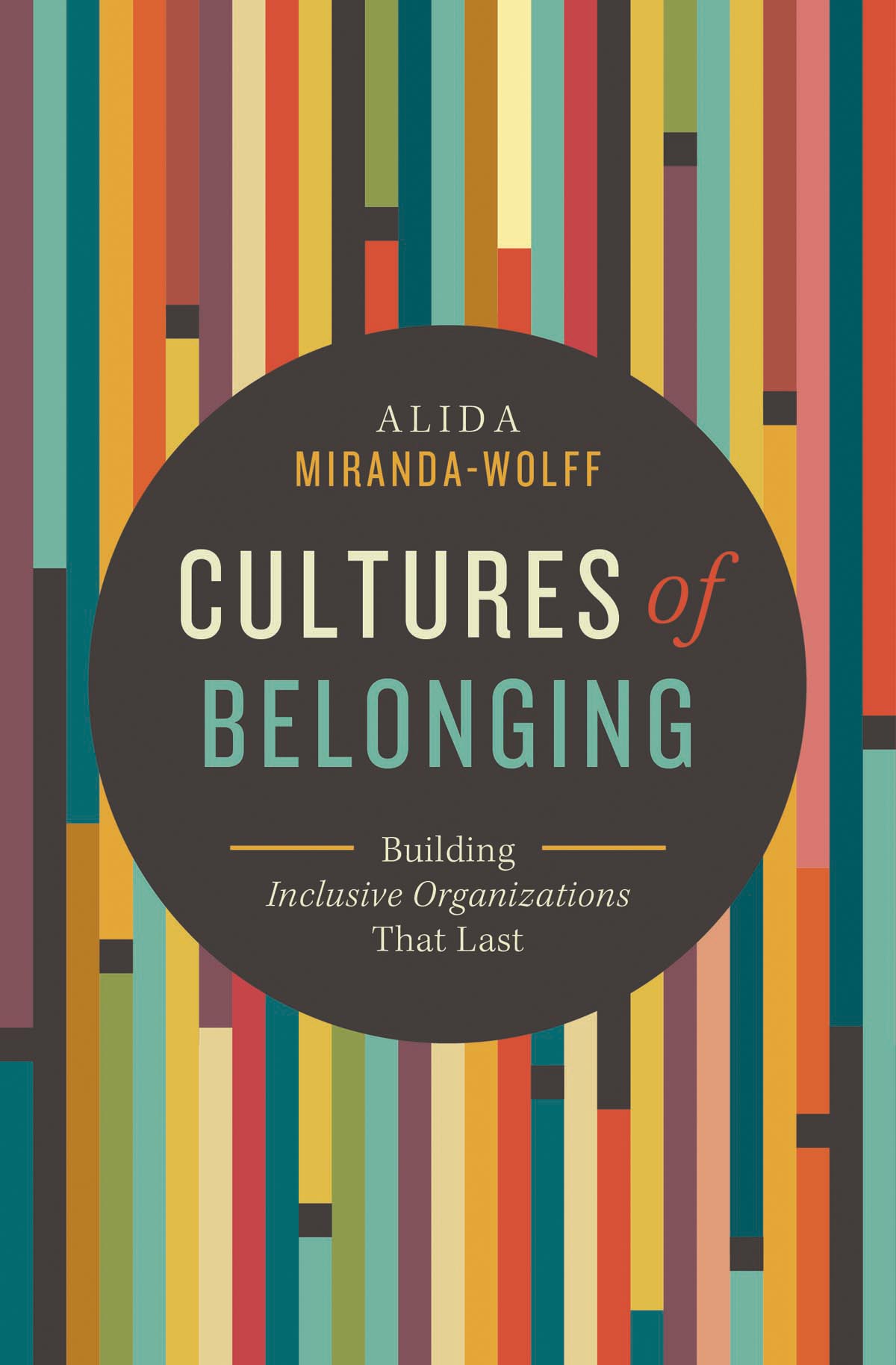Praise for Cultures of Belonging
Whether you are a leader who isnt sure where to start or a practitioner looking to expand your impact, this book will help you take a tangible next step toward a more inclusive future.
TAYLOR ELYSE MORRISON, Founder of Inner Workout
HR and people operations practitioners have been waiting for step-by-step support in building effective DEI programs in their organizations, and this guide is relevant, actionable, and oh so needed. The time for Cultures of Belonging is now.
TIFFANY VOLTZ, Founder of Wellness from Within Coaching
A great read for organizations that want to learn what a culture of belonging is, how to strategize, and how to bring all of the concepts to life.
LATONYA WILKINS, Bestselling Author of Leading Below the Surface
Alida Miranda-Wolffs generous, thoughtful book conveys the urgency of meeting people where they are if we want to create meaningful change. She offers a realistic roadmap for workplaces to shift toward a true culture of belonging while holding space for the ways in which the journey may not always be a straightforward one. The nuanced approaches, concrete action steps, and clarifying examples she shares make Cultures of Belonging a truly invaluable guide for a broad range of organizations.
EMILY LADAU, Activist and Author of Demystifying Disability
Cultures of Belonging centers the employee experience in the DEIB conversation and reminds us that while intention is important... its the impact of workplace culture on workers that organizations need to understand, accept, and ultimately address.
SUKARI PINNOCK FITTS, Program Director of the DEI Executive Certificate Program at the Georgetown Institute for Transformational Leadership
Alida Miranda-Wolff provides a valuable framework for how organizations can seriously approach diversity, equity, inclusion, and belonging. For leaders who believe that the strength of any business is driven by diversity and are willing to do the tough but necessary work, this book walks them through the steps needed to drive real progress.
DAN FUTRELL, CEO of the Pat Tillman Foundation
Now more than ever, leaders need to make belonging central to their organizations, but they need help and guidance on that journey. Cultures of Belonging is the blueprint and the roadmap to making change possible.
COLLEEN D. EGAN, President and CEO of the Illinois Science & Technology Coalition
Cultures of Belonging is an indispensable guide written by a true expert in the field. It is the rare book that is profound and practical, thoughtful and actionable. If you want to go beyond talk and make meaningful change in your organization, this book is required reading.
MICHAEL WINNICK, Founder and CEO of dscout
2022 Alida Miranda-Wolff
All rights reserved. No portion of this book may be reproduced, stored in a retrieval system, or transmitted in any form or by any meanselectronic, mechanical, photocopy, recording, scanning, or otherexcept for brief quotations in critical reviews or articles, without the prior written permission of the publisher.
Published by HarperCollins Leadership, an imprint of HarperCollins Focus LLC.
Any internet addresses, phone numbers, or company or product information printed in this book are offered as a resource and are not intended in any way to be or to imply an endorsement by HarperCollins Leadership, nor does HarperCollins Leadership vouch for the existence, content, or services of these sites, phone numbers, companies, or products beyond the life of this book.
Book design by Aubrey Khan, Neuwirth & Associates.
Sun icon by Made x Made from the Noun Project.
ISBN 978-1-4002-2948-2 (eBook)
ISBN 978-1-4002-2925-3 (TP)
Epub Edition December 2021 9781400229482
Library of Congress Control Number: 2021950730
Printed in the United States of America
22 23 24 25 26 LSC 10 9 8 7 6 5 4 3 2 1
Ebook Instructions
In this ebook edition, please use your devices note-taking function to record your thoughts wherever you see the bracketed instructions [Your Notes]. Use your devices highlighting function to record your response whenever you are asked to checkmark, circle, underline, or otherwise indicate your answer(s).
Information about External Hyperlinks in this ebook
Please note that the endnotes in this ebook may contain hyperlinks to external websites as part of bibliographic citations. These hyperlinks have not been activated by the publisher, who cannot verify the accuracy of these links beyond the date of publication
For those who feel like outsiders,
and all of the people who invite them in.
CONTENTS
Guide
When people think the same idea and move in the same direction, thats a cult. When people think many different ideas and move in one direction, thats a movement.
LORETTA ROSS (SISTERSONG)
I have never belonged anywhere.
As a White Hispanic cisgender woman with an invisible disability who has navigated careers in management consulting, manufacturing, venture capital, and entrepreneurship, I have experienced a particular kind of only-ness.
Since I can remember, others have defined my identity as, You dont count.
In the dominant group, my identities dont hold enough power or privilege. I am culturally Hispanic; femme in appearance, sensibility, and behavior; and willing to name (rather than hide) my chronic illness and physical disabilities.
In the marginalized group, where BIPOC (Black, Indigenous, People of Color), gender nonconforming, and visibly othered people come together, my identities hold too much power and privilege. I am White, after all, and much of my difference is invisible.
This sense of lack of belonging has followed me throughout my life. I dont have a hometown or a childhood home to visit. I have lost most of my family to illness or distance. I dont have an easily identifiable or relatable culture.
Belonging is a core human need, one so many of us expect to find at work, where the formation of community is a given, but a sense of healthy community is not. Our organizations can and should see us, welcome us, and value us for all we are.
I want you to take a few main ideas from Cultures of Belonging: Building Inclusive Organizations That Last:
- Leaders of organizations and teams are now expected to commit to diversity, equity, inclusion, and belonging, as well as be experts on how to achieve them.
- Belonging is your sense that you are part of something greater than yourself that you value and need and that values and needs you back; it cannot be achieved without factoring in social identity and use and misuse of power.
- Belonging comes from developing context, creating connection, building community, and understanding your relationships to power, how to use your power responsibly, how to share your power, and when and how to redistribute your power.
- Using a set of structures, tools, techniques, processes, and procedures, you can design the conditions for thriving and belonging at work.
- The structural interventions you make must factor in readiness, culture, recruiting, retention, promotion, and protection.
- When you make these interventions, you build a healthier, more sustainable organization that simply runs better while also helping create opportunity, equitable access, and justice for the people who drive it each day.
One of my heroes, the trust researcher and scholar Rachel Botsman, defines trust as a confident relationship with the unknown. Ive learned that when there isnt enough time to make promises and keep them, vulnerability is the only tool that engenders that confidence.

